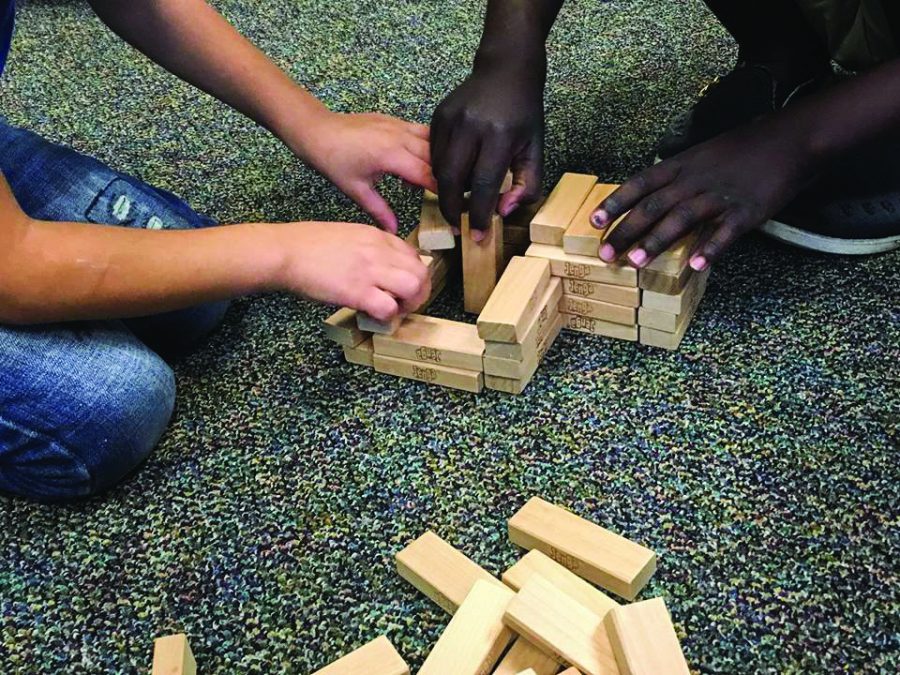Summer camp should be accessible and affordable
Campers play with Jenga blocks to create their own small structures during indoor game time on a rainy day. // Photo By: Kathleen Herbst/The Guilfordian
Popsicle juice dripping on your hands. A soccer ball kicked a little too far to the right. A community of people who you’ve only known for a week, but who feel like close friends.
For many, camp is a staple of long childhood summer breaks. It’s a place to make friends, participate in new activities and give parents a break. But it’s not a universal experience or opportunity. Summer camp is often expensive and can be difficult logistically. It is not an experience made available for every child.
According to the American Camp Association, “Day camp tuition averages can be $199 a week up to [more than] $800 a week.” For families with multiple children, this number only increases and becomes a less affordable option. While there are IRS and other governmental programs to aid in day camp costs under specific circumstances, these do not cover all day camp costs.
I grew up going to one week of camp per summer. This was a privilege. I worked as a camp counselor at an overnight camp for a few years, and enjoyed working with kids and planning activities and seeing their excitement, especially when they had a particularly magical camp experience. But I stopped working at camp to focus my energy on my classes and find a project that could relate to the Greensboro community and the Every Campus a Refuge (ECAR) minor I’d recently committed to.
In March of 2018, I had an idea that combined my love of both camp and my ECAR studies: what if Guilford College could host a free summer camp? It would be open for children who have been through the ECAR program. Like the mission of ECAR itself, which strives to utilize campus resources during the process of resettlement, Camp ECAR would function off community support and collaboration.
As a college student, I was able to receive funding through the Center for Principled Problem Solving to organize this camp. We had lunch provided by the dining hall, with plenty of patience from the staff as the kids decided to play hide-and-seek beneath tables. Community members helped with transportation, and volunteers worked as camp counselors. The Guilford farm led a program and taught the kids about sustainable food systems.
After my experience with Camp ECAR, I believe even more strongly that summer camp should be accessible with plenty of quality free options available. The children we served through Camp ECAR largely were just home for the summer, entertaining themselves with their siblings and neighborhood. This was an opportunity to give kids the chance to learn about science and the outdoors. It was a way for kids to make friends and develop new interests and skills. It’s a time for parents or guardians to have a break from childcare.
Greensboro’s community has developed many options for specialty, free summer camps. UNC Greensboro started a chapter of Camp Kesem, a camp designed to support children through their parents’ cancer. The Parks and Recreation department hosts a camp called ENERGY in the park that utilizes local playgrounds as community areas for play. This year, Guilford hosted Camp ECAR. Our options to support our community, to support the value of free summer programs, are limitless. Together, Greensboro can provide a bit of camp magic to every child in our city.
If you are interested in working with Every Campus a Refuge, email Kathleen Herbst at herbstk@guilford.edu for more information.









